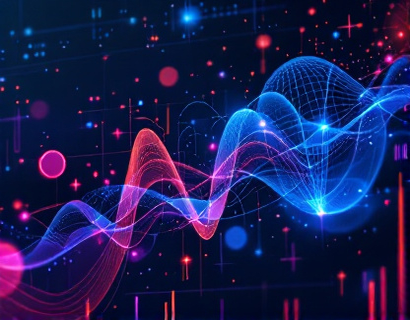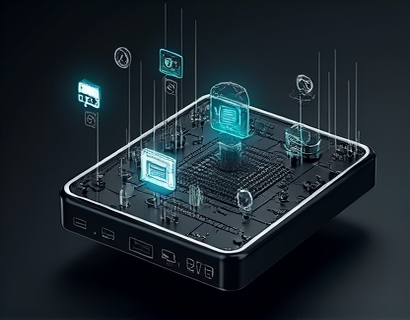AI-Driven Health Solutions: Revolutionizing Personalized Medical Support with Advanced Technology
The integration of artificial intelligence (AI) in the healthcare sector marks a pivotal shift towards more personalized, efficient, and accessible medical support. This transformation is not just a futuristic vision but a present reality, driven by advancements in technology and an increasing demand for tailored health solutions. The advent of AI-driven health platforms is redefining how individuals manage their well-being and make informed medical decisions. These platforms leverage sophisticated algorithms, machine learning, and vast datasets to offer instant expert advice and reliable health information, marking a significant leap in the realm of healthtech.
Understanding AI in Healthcare
AI in healthcare encompasses a broad range of applications, from predictive analytics and diagnostic tools to personalized treatment plans and patient monitoring systems. The core advantage of AI lies in its ability to process and analyze vast amounts of data at speeds and scales unattainable by human practitioners. This capability is particularly valuable in healthcare, where the volume of data—ranging from patient records and genetic information to real-time health metrics—is continuously growing.
Machine learning, a subset of AI, plays a crucial role in this revolution. By learning from vast datasets, machine learning models can identify patterns, predict outcomes, and suggest interventions with high accuracy. For instance, AI algorithms can analyze medical images to detect early signs of diseases like cancer or diabetic retinopathy with precision that rivals or exceeds human experts. This not only enhances diagnostic accuracy but also accelerates the treatment process, potentially saving lives.
Personalized Medical Support through AI
The cornerstone of AI-driven health solutions is personalized medical support. Traditional healthcare often follows a one-size-fits-all approach, which can be ineffective for many individuals due to unique genetic, environmental, and lifestyle factors. AI changes this paradigm by providing tailored recommendations based on individual data. For example, an AI platform can analyze a user's genetic profile, lifestyle habits, and medical history to suggest personalized diet and exercise plans, medication regimens, and preventive measures.
One of the key features of these platforms is their ability to offer real-time advice and monitoring. Users can receive instant feedback on their health metrics, such as heart rate, blood pressure, and sleep patterns, through connected devices. This continuous monitoring allows for early detection of potential health issues and timely interventions, significantly improving health outcomes. Moreover, AI chatbots and virtual assistants can provide 24/7 support, answering health queries and guiding users through self-care routines.
Enhancing Patient Engagement and Empowerment
AI-driven health solutions are not just about providing information; they are designed to empower patients to take an active role in their health management. By offering accessible and understandable health data, these platforms enable users to make informed decisions about their well-being. For instance, a patient with chronic conditions can use an AI app to track symptoms, medication adherence, and lifestyle factors, receiving actionable insights to manage their condition more effectively.
Patient engagement is further enhanced through educational content and interactive tools. AI can curate personalized health education materials, such as articles, videos, and quizzes, based on a user's knowledge level and interests. This tailored approach ensures that users receive information that is both relevant and actionable, fostering a deeper understanding of their health and encouraging proactive behavior.
Improving Healthcare Efficiency and Accessibility
The impact of AI on healthcare efficiency is profound. By automating routine tasks such as data entry, appointment scheduling, and initial symptom assessments, AI frees up healthcare professionals to focus on more complex and critical aspects of patient care. This not only reduces the workload on medical staff but also minimizes human errors, leading to higher quality care.
Accessibility is another significant benefit. AI-driven health platforms can reach individuals in remote or underserved areas, where access to medical expertise is limited. Through mobile apps and web interfaces, users can access expert advice and health resources anytime, anywhere. This democratization of healthcare ensures that more people can benefit from high-quality medical support, regardless of their geographical location or socioeconomic status.
Challenges and Considerations
Despite the numerous advantages, the integration of AI in healthcare is not without challenges. One major concern is data privacy and security. Health data is highly sensitive, and ensuring its protection is paramount. AI platforms must adhere to stringent data protection standards and implement robust security measures to safeguard user information.
Another consideration is the need for transparency and trust. Users must understand how AI algorithms arrive at their recommendations and feel confident in the accuracy and reliability of the information provided. This requires clear communication and ongoing validation of AI models to maintain high standards of performance.
Additionally, there is a risk of over-reliance on AI, which could undermine the human element in healthcare. While AI can provide valuable insights, it should complement rather than replace the expertise and empathy of healthcare professionals. A balanced approach that integrates AI with human judgment is essential for optimal patient care.
Future Prospects and Innovations
The future of AI-driven health solutions is promising, with ongoing research and development pushing the boundaries of what is possible. One exciting area is the integration of AI with wearable technology and the Internet of Medical Things (IoMT). These devices can continuously monitor health metrics and feed data into AI systems, enabling real-time health monitoring and predictive analytics. For example, smart wearables can detect early signs of heart disease or diabetes, alerting users and healthcare providers to take preventive actions.
Another frontier is the use of AI in drug discovery and personalized medicine. AI algorithms can analyze vast chemical libraries and genetic data to identify potential drug candidates and tailor treatments to individual patients. This could lead to more effective therapies with fewer side effects, revolutionizing the way we approach disease treatment.
Furthermore, the combination of AI with other advanced technologies like blockchain and quantum computing holds the potential to create even more robust and secure health systems. Blockchain can ensure the integrity and traceability of health data, while quantum computing can solve complex problems that are currently infeasible for classical computers, further enhancing AI's capabilities in healthcare.
Conclusion
The integration of AI in healthcare is transforming the landscape of medical support, offering unprecedented levels of personalization, efficiency, and accessibility. By harnessing the power of advanced technology, AI-driven health solutions are empowering individuals to take control of their well-being and make informed medical decisions. As the technology continues to evolve, the potential for even greater innovations and improvements in healthcare is immense. Embracing AI in healthcare is not just a step into the future; it is a necessary evolution to meet the growing demands of a health-conscious world.










































